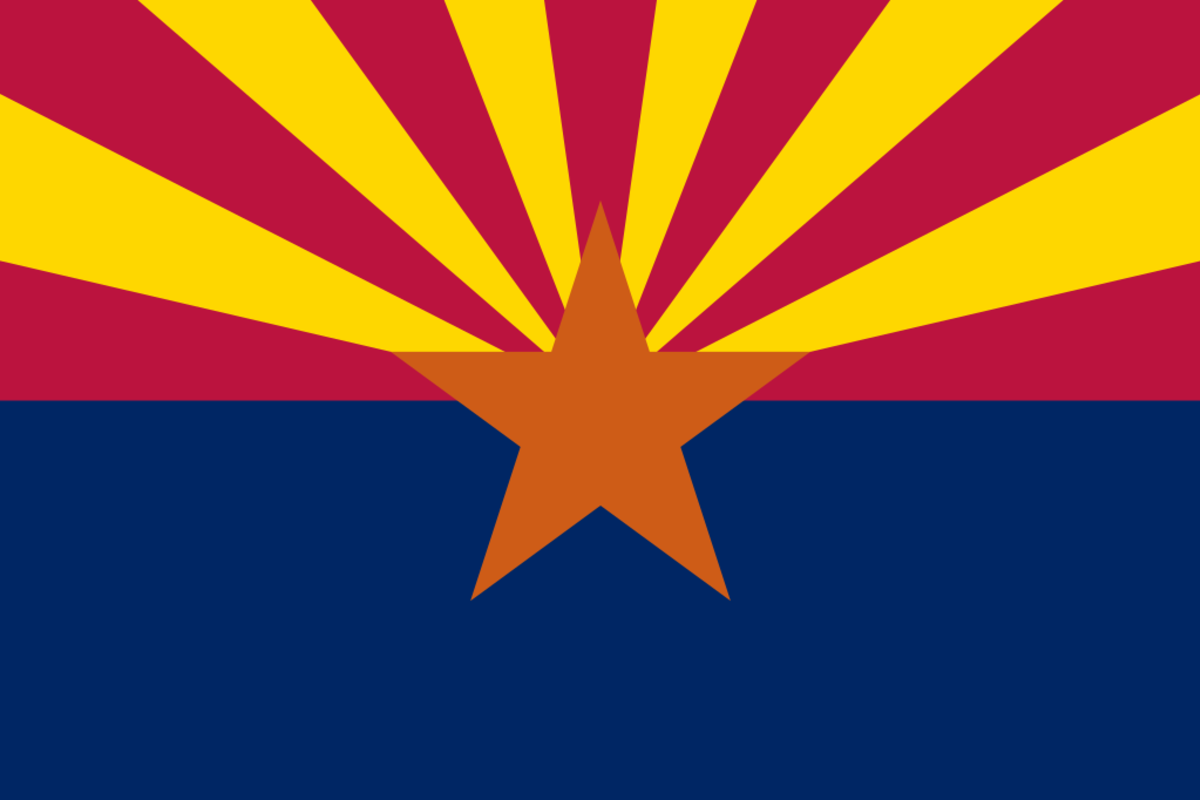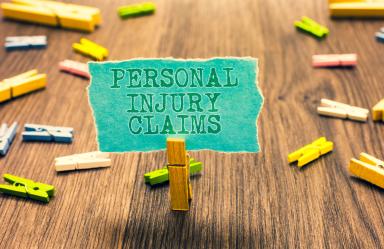Arizona Personal Injury Laws

Arizona is a popular tourist destination with its scenic mountain ranges, plateaus, and state parks. It is also endowed with five major rivers and 128 lakes, including one of the longest rivers in the country — the Colorado River — responsible for carving a 277-mile chasm through the Grand Canyon. Getting there can be so much fun, but it also means drivers have to navigate through some of the most dangerous roads in Arizona, which include Interstates 10, 17, 19, and 40, as well as U.S. Route 93. Some of the factors that make these roads dangerous are heavy commuter traffic, lengthy stretches with no guardrails, and dynamic road conditions. Moreover, the Arizona Department of Transportation recorded a total of 121,345 crashes in 2021, equivalent to over $20 billion in economic losses, based on the Arizona Motor Vehicle Crash Facts. This figure comprises 1,063 fatalities, 35,203 injuries, and 85,079 property damage crashes, which resulted in 1,180 deaths, 3,819 serious injuries, and 21,416 minor injuries.
In an effort to reduce fatalities and serious injuries throughout the state, the Office of Highway Safety published the Arizona Highway Safety Plan for 2023. Its focus areas are driver behavior-related, which include:
Impaired driving
Occupant protection
Speeding and reckless driving
Motorcycle safety
Pedestrian behavior
Distracted driving
The plan also outlines Arizona’s strategies to address these areas, such as procuring equipment to enhance impaired, speeding, and distracted driving law enforcement, conducting safety belt and child safety seat inspections and classes, promoting media awareness, and encouraging pedestrian and motorcycle safety through coordinated efforts with the local government. There are also various policies in place that can help injured victims with their cases. These will be discussed further in this article, which will focus not only on auto accidents but also on personal injury laws in general.
Arizona Auto Accident Laws
If you are injured in a car accident in Arizona, you need to stay calm, stop your vehicle, and not leave the scene. It is against the law to leave the scene without exchanging information with the other driver. This should include the other driver’s name and address, driver’s license and insurance details, and vehicle registration number.
You are also mandated to help injured individuals involved in the accident. Call the police, even if it was a minor accident, and be factual when talking to them. If, for some reason, you believe that the other driver was drunk or engaged in reckless driving, you need to inform the police officer. If possible, collect statements and information from witnesses, including pedestrians, people in adjacent buildings, drivers and passengers of other vehicles, and emergency responders.
Additionally, you need to seek medical attention and keep a detailed record of your expenses and injuries. Notify your insurance provider, but do not accept fault or agree to a settlement immediately. It is also crucial to hire an experienced personal injury lawyer who can help you obtain fair compensation from the negligent party or their insurance company.
Product Liability Law in Arizona
In Arizona, product liability action is defined as a lawsuit or claim brought against a product manufacturer or seller for damages, including bodily injuries, damage to property, or death, resulting from the use or consumption of the product.
Typically, if this course of action is committed more than 12 years after the product was used or consumed, the plaintiff loses their right to compensation unless the claim is based on negligence or breach of warranty.
In determining product liability, personal injury lawyers can help a plaintiff prove that the defendant sold or manufactured a defective product, that caused property damage or injury. It may include defects in product instructions or warnings, manufacturing, or design.
Inadequate product instructions or warnings occur when manufacturers fail to adequately inform users of the dangers related to the use or consumption of their products. For instance, if a floating device constitutes a drowning hazard, the packaging must have a warning to parents and should include age restrictions. Manufacturers are also required to provide appropriate operating instructions, including the consequences of not following such instructions.
A manufacturing defect is when some errors happen during the production process so that even if the product is properly designed, it remains unsafe to consume or utilize. Examples of manufacturing defects are outdated components installed accidentally, parts that are attached incorrectly, and wrong types of fastener, bolt, or screw used on a mechanical part.
Lastly, defective design means the product is inherently dangerous due to its makeup or structure, e.g., products prone to melting, helmets that break from mild impact, and toys for children with parts that pose choking hazards.
Arizona Premises Liability Law
Arizona law mandates business owners to ensure the safety of their customers by providing appropriate warnings if dangerous conditions are present on their property. A premises liability lawsuit may involve injuries from a slip and fall, a dog bite or animal attack, an escalator or elevator accident, an equipment malfunction, potholes, or an unmarked wet floor. A lawsuit may be filed if the business owner knows about the dangerous condition, if their employee caused the unsafe condition, or if an employee or business manager should have discovered the condition before anyone got injured.
On the other hand, a non-commercial property owner may not be liable for a trespasser’s injuries unless they deliberately created the risk. For instance, you may be held responsible if you intentionally set up a dangerous situation, like a trap, because you thought someone was breaking into your property without authorization. However, if the trespasser is a child, you, as the property owner, owe a higher duty of care. According to the Attractive Nuisance Doctrine, you will be held accountable for harming a child who was trespassing on your land, regardless if you are aware or not, if the injuries were caused by a condition that might draw the attention of the child, or if the child was too young to understand the hazard. For example, if a child entered your property through an unlocked fence and got hurt, you may be considered responsible for their injuries.
Liability for Dog Bites in Arizona
Arizona dog bite law stipulates that dog owners are held strictly liable for any harm caused by their dog, regardless of fault on the injured person’s part. Unlike other states, Arizona does not adhere to the one-bite rule, under which dogs are allowed one free bite before the owner faces legal trouble.
In Arizona, the strict liability rule applies to injuries, such as a broken wrist or a sprained ankle, caused by dogs that are at large. These include dogs not tied to a leash or confined to an enclosed space.
Determining Fault and Negligence in Arizona
Arizona is among 38 states that follow a fault-based system for insurance claims. If you are injured in an auto accident, you have three options to recover damages. These include filing a claim with your own insurance company, filing a third-party claim with the negligent party’s insurance provider, and filing a car accident lawsuit against the at-fault driver.
In addition, the Grand Canyon State adheres to a pure comparative negligence system, under which the compensatory award is reduced in proportion to the plaintiff’s percentage of fault. For instance, if the jury determines that the total damages you suffered amount to $100,000 and you are 10% at fault for the accident, the compensation you will receive is reduced to $90,000. If multiple parties are involved in the accident, the jury will determine each party's fault percentage. However, any person who has knowingly, deliberately, and wantonly caused harm or wrongful death to others is not entitled to comparative negligence.
Arizona Auto Liability Insurance Requirements
Arizona requires anyone who operates a motor vehicle throughout the state to have auto insurance coverage. The minimum liability limits are as follows:
$25,000 for bodily injury to or death of one person
$50,000 for bodily injury to or death of two or more people
$15,000 for damage to property
When asked by law enforcement officers, drivers are also obliged to show physical or digital proof of car insurance. If you are caught driving without insurance, you will face a fine of up to $500, a license suspension for three months, and an SR-22 certificate for two years for the first offense. For the second offense, drivers will face $750 in fines, a six-month license suspension, and a two-year SR-22 certificate. For third and subsequent offenses, the penalties increase to $1,000 in fines, one-year license suspension, and a two-year SR-22 certificate.
Arizona Business Liability Insurance Requirements
Arizona does not require most businesses to have insurance coverage. If a business owns vehicles, it is required to carry commercial vehicle insurance that may include property damage, bodily and personal injury, collision, comprehensive, and uninsured motorist coverages.
State law also mandates that businesses have workers’ compensation insurance policies for their employees. However, if a sole proprietor does not have any employees, they are not obliged to maintain workers’ compensation insurance.
Workers’ Compensation Insurance
In Arizona and most states, workers’ compensation is a no-fault system, under which employers are required to give compensation to an injured employee regardless if they are fully or partially at fault for the accident. Employees are entitled to temporary and permanent compensation and medical benefits, including supportive medical care. However, if their injuries are proven to be purposely self-inflicted, they will not be eligible for any workers’ compensation benefits.
An uninsured employer may face a fine of up to $1,000 if they fail to secure workers’ compensation insurance for their employees. If the employer remains uninsured twice within five years, the fine is increased to $5,000. The penalty further increases to $10,000 if the employer is found to have been uninsured three times in five years.
How Much Can Someone Sue for an Injury in Arizona?
Arizona law does not place damage caps for personal injury cases. The amount of the compensatory award depends entirely on the jury’s decision. However, if the judge deems the payment excessive or unconstitutional, they may change the amount of damages. An experienced personal injury lawyer can help plaintiffs receive fair compensation that covers economic and non-economic damages. In some cases, punitive damages may also be awarded.
Economic Damages
Economic damages are calculable financial losses suffered by the victim. These include medical bills and rehabilitation costs, lost wages and future earning capacity, caregiving and funeral expenses, household services, and property damage.
Non-Economic Damages
Non-economic damages are intangible losses that affect the victim’s quality of life. These include emotional trauma, pain and suffering, lost companionship and enjoyment of life, PTSD, and depression. Personal injury lawyers and insurance companies commonly use a multiplier value between 1.5 to 5 to calculate non-economic damages.
Punitive Damages
Punitive damages may also be awarded in cases where the defendant knowingly and intentionally causes harm to others. This type of compensation aims to punish the defendant for their wrongdoings and deter other people from committing the same misconduct. It may also be awarded in product liability lawsuits when the manufacturer fails to warn about the risks of any serious illness or injury brought about by their products.
There is no cap on punitive damages, but the U.S. Supreme Court deems that an amount that exceeds the 9:1 punitive to compensatory award ratio is unconstitutional. Additionally, public entities or employees who are acting within the scope of their employment are immune from punitive damages.
The Statute of Limitations for Personal Injury Lawsuits in Arizona
The statute of limitations for personal injury cases in Arizona is two years. This means the plaintiff must file a personal injury lawsuit within two years of the incident date. However, the time limit for bringing claims can vary depending on the circumstances surrounding each case:
For wrongful death cases, the claim should be filed within two years of the victim’s death.
If the victim is a minor or is mentally incapacitated, the clock begins when the victim turns 18 or becomes mentally capable.
If the defendant leaves the state following the incident, the clock will be halted until they return.
The discovery rule applies if the victim finds out about their injuries at a later time. Under this rule, the two-year time limit begins from the date of discovery.
Legal Resources for Injured Folks in Arizona
Arizona Department of Insurance and Financial Institutions
Arizona DIFI ensures the compliance of insurance companies that operate throughout the state. Its website allows Arizonans to file complaints against an appraiser, financial institution, or insurance entity. It also provides some answers to consumers’ most frequently asked questions.
Legal Aid for Referrals
Legal Aid for Referrals helps Arizonans obtain legal representation. It provides referrals for various personal injury cases, such as slips and falls, motor vehicle accidents, wrongful death, and workers’ compensation. It also conducts legal education programs and workshops free of charge. You may contact them by phone at (480) 658-2552.
Arizona Bar Foundation
The State Bar of Arizona provides legal aid resources to deserving Arizonans. In addition to advocating for equal access to the justice system, it offers financial and technical support for civic education programs. Downloadable forms are also available on their website.
2-1-1 Arizona
2-1-1 Arizona is an organization that offers emotional support to personal injury victims. It also provides health and human service referrals and information throughout the state. It conducts programs that support and guide Arizonans to resolve their mental, social, and personal problems. In addition, 2-1-1 Arizona provides individual and group counseling, medication, and mental health services. You may contact them by phone at 2-1-1 if within Arizona or (877) 211-8661 from other states. You may also send a letter to 1275 W. Washington St., Suite 210, Tempe, Arizona 85281-1859.
Industrial Commission of Arizona
The Industrial Commission of Arizona is an agency that assists employees injured in the workplace. It aims to protect the welfare, life, health, and safety of the state’s workforce. The ICA handles labor-related issues, including workers’ compensation coverage for uninsured employer claimants and occupational health and safety.
Expertise.com StaffAuthor
Step into the world of Expertise.com, your go-to hub for credible insights. We don't take accuracy lightly around here. Our squad of expert reviewers, each a maestro in their field, has given the green light to every single article you'll find. From rigorous fact-checking to meticulous evaluations of service providers, we've got it all covered. So feel free to dive in and explore. The information you'll uncover has been stamped with the seal of approval by our top-notch experts.




